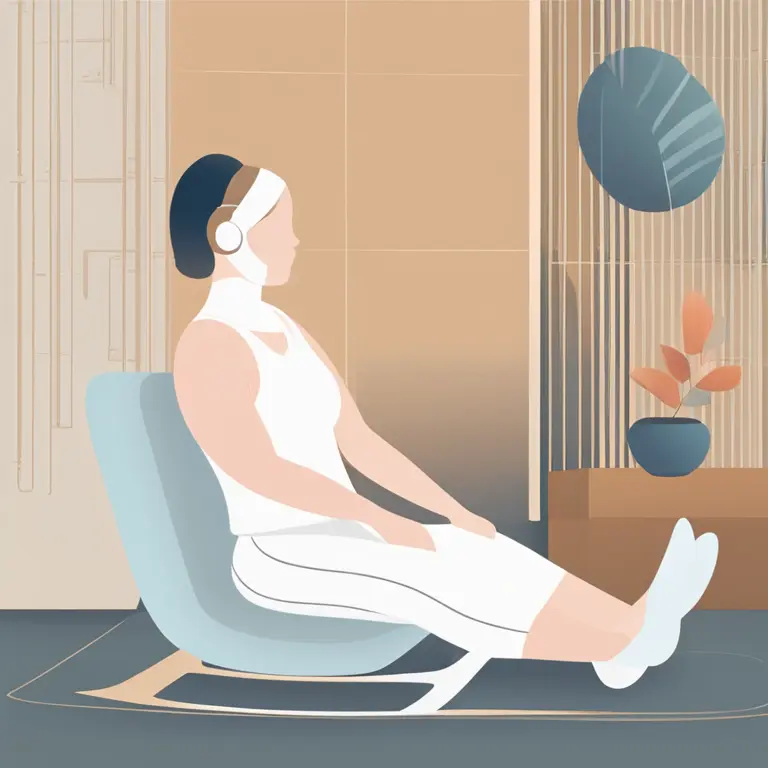
Best Meditation Practices for Relieving Anxiety
Discover the most effective meditation techniques designed to help alleviate anxiety and promote mental well-being.
article by Hina Kurosawa
Understanding Anxiety and Meditation
Anxiety is a common emotional state characterized by feelings of tension, worried thoughts, and physical changes like increased blood pressure. To combat these symptoms, meditation has emerged as a valuable tool for promoting relaxation and mental clarity. Meditation, in its various forms, can help reduce stress, improve concentration, and enhance overall emotional health. In this article, we'll delve into the best meditation practices tailored to soothe the anxious mind.

Mindfulness Meditation
Mindfulness meditation is a practice rooted in being fully present and engaged in the moment, without judgment. It allows individuals to observe their thoughts and feelings from a distance, without labeling them as good or bad. This process helps break the cycle of anxiety by reducing rumination and fostering a greater sense of calm. Scientific studies have shown that regular mindfulness practice can significantly lessen the symptoms of anxiety disorders.

Guided Imagery
Guided imagery is a visualization technique that involves imagining a peaceful and calming scenario in detail. This practice engages the senses to create a serene mental escape, which can be particularly helpful for those grappling with anxiety's physical manifestations. By concentrating on positive and tranquil images, one can redirect their focus away from stressors, allowing the body to relax and the mind to reset.

Progressive Muscle Relaxation
Progressive muscle relaxation (PMR) is a technique that promotes relaxation by tensing and then relaxing each muscle group in the body. This method can be especially beneficial for anxiety sufferers who experience muscle tension and pain as symptoms. PMR aids in recognizing and releasing physical discomfort, often leading to a reduction in mental stress as well.

Breath-Focused Meditation
Breathing exercises are central to many forms of meditation, and breath-focused practices can be particularly effective in managing anxiety. By paying attention to the breath and practicing deep, abdominal breathing, one can activate the body's natural relaxation response. This can lead to lower heart rate and blood pressure, reduced stress hormone levels, and a greater sense of peace.
Mantra Meditation
Mantra meditation involves the silent repetition of a word or phrase, which can help focus the mind and facilitate deeper levels of awareness and tranquility. The repetition of the mantra can serve as a calming anchor, allowing anxious thoughts to drift away and providing a refuge from the chaotic mind. This practice has been embraced across various cultures and traditions for its ability to reduce stress and improve mental focus.
Zen Meditation (Zazen)
Zen meditation, or Zazen, is a form of meditation that can be particularly helpful in quieting a busy mind. It often involves observing the breath and thoughts without attachment, promoting a state of mental stillness. For those dealing with anxiety, Zazen provides a structured practice to steady the mind and cultivate a sense of inner peace.
Loving-Kindness Meditation
Loving-kindness meditation, or Metta meditation, is a practice centered around cultivating feelings of goodwill, kindness, and warmth towards oneself and others. This form of meditation can be effective in reducing anxiety, as it focuses on positive emotions and encourages a compassionate outlook. By replacing negative thought patterns with affirmations of love and kindness, practitioners can experience relief from anxiety.
Published: 1/14/2024
Modified: 1/15/2024
More predictions
Come back here soon to learn more about yourself and your future


Mindfulness & Meditation: A Guide for High Schoolers
Discover the benefits of mindfulness meditation tailored for the hectic life of high school students, and learn simple strategies to incorporate it into the daily routine.


Healing Through Mindfulness: Meditation & Trauma Recovery
Mindfulness meditation offers a powerful tool for individuals seeking solace and healing from traumatic experiences. Discover how this practice can aid in the journey towards inner peace.


Easing Loneliness with Meditation
Discover how mindfulness meditation can provide solace and connection to mitigate feelings of loneliness, enhancing emotional and mental well-being.